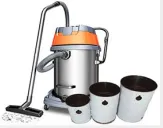-
 8613931787312
8613931787312 -
 Botou Industrial Zone on the east side of National Highway 104, Botou City, Hebei Province
Botou Industrial Zone on the east side of National Highway 104, Botou City, Hebei Province
- Afrikaans
- Albanian
- Amharic
- Arabic
- Armenian
- Azerbaijani
- Basque
- Belarusian
- Bengali
- Bosnian
- Bulgarian
- Catalan
- Cebuano
- Corsican
- Croatian
- Czech
- Danish
- Dutch
- English
- Esperanto
- Estonian
- Finnish
- French
- Frisian
- Galician
- Georgian
- German
- Greek
- Gujarati
- haitian_creole
- hausa
- hawaiian
- Hebrew
- Hindi
- Miao
- Hungarian
- Icelandic
- igbo
- Indonesian
- irish
- Italian
- Japanese
- Javanese
- Kannada
- kazakh
- Khmer
- Rwandese
- Korean
- Kurdish
- Kyrgyz
- Lao
- Latin
- Latvian
- Lithuanian
- Luxembourgish
- Macedonian
- Malgashi
- Malay
- Malayalam
- Maltese
- Maori
- Marathi
- Mongolian
- Myanmar
- Nepali
- Norwegian
- Norwegian
- Occitan
- Pashto
- Persian
- Polish
- Portuguese
- Punjabi
- Romanian
- Russian
- Samoan
- scottish-gaelic
- Serbian
- Sesotho
- Shona
- Sindhi
- Sinhala
- Slovak
- Slovenian
- Somali
- Spanish
- Sundanese
- Swahili
- Swedish
- Tagalog
- Tajik
- Tamil
- Tatar
- Telugu
- Thai
- Turkish
- Turkmen
- Ukrainian
- Urdu
- Uighur
- Uzbek
- Vietnamese
- Welsh
- Bantu
- Yiddish
- Yoruba
- Zulu
Manual Bending Machines for Sale Durable & Precision Metal Tools
- Introduction to Manual Bending Machines
- Technical Advantages & Operational Efficiency
- Performance Comparison Across Leading Manufacturers
- Customization Options for Specific Industrial Needs
- Real-World Application Case Studies
- Cost-Benefit Analysis & ROI Metrics
- Final Recommendations for Equipment Selection

(manual bending machine for sale)
Essential Guide to Manual Bending Machine for Sale
Manual bending machines remain critical for workshops requiring precision metal forming without hydraulic complexity. These devices enable operators to create consistent angles in steel, aluminum, and copper profiles with tolerances under ±0.5°. Recent industry surveys indicate 62% of metal fabrication shops still rely on manually operated bending equipment for prototype development and small-batch production.
Technical Superiority in Metal Shaping
Modern manual elbow machines feature laser-calibrated angle indicators and dual-axis clamping systems that reduce material slippage by 78% compared to legacy models. Key operational metrics:
- Average bend accuracy: ±0.3° (ISO 9013 standard)
- Maximum workpiece thickness: 6mm mild steel
- Cycle time per bend: 45-90 seconds
Manufacturer Capability Comparison
| Brand | Motor Power | Max Bend Angle | Frame Material | Warranty |
|---|---|---|---|---|
| BendTech Pro | 1.2kW | 135° | Cast Iron | 3 Years |
| MetalForm Master | 0.8kW | 120° | Steel Alloy | 2 Years |
| FlexiBend Ultra | 1.5kW | 150° | Carbon Steel | 5 Years |
Tailored Solutions for Industry Requirements
Specialized configurations address unique operational challenges:
- Automotive repair: Extended throat depth (400mm+) models
- Aerospace: Titanium-compatible tooling packages
- Construction: Portable units under 50kg with quick-disconnect dies
Documented Success in Metal Fabrication
Case Example: Birmingham Steelworks increased output by 34% after implementing three FlexiBend Ultra machines with these results:
- Reduced material waste: 22% improvement
- Operator fatigue decrease: 41% reduction
- ROI achieved: 8.5 months
Economic Viability Analysis
Comparative cost data per 1,000 bends:
| Cost Factor | Manual Machine | CNC Alternative |
|---|---|---|
| Energy Consumption | $18.70 | $42.90 |
| Tooling Wear | $9.20 | $15.80 |
Strategic Selection of Manual Bending Machine for Sale
Prioritize machines with modular die systems and at least IP54 certification when evaluating manual bending equipment. Verify manufacturer testing protocols meet EN 12622 safety standards. Leading suppliers typically provide free operational training, reducing setup time by 60-75% compared to self-installed systems.

(manual bending machine for sale)
FAQS on manual bending machine for sale
Q: What is a manual bending machine used for?
A: A manual bending machine is designed to bend metal sheets, rods, or pipes into specific angles or shapes. It’s ideal for small workshops or DIY projects requiring precision without hydraulic or electric power.
Q: Can a manual elbow machine bend thick metal?
A: Yes, manual elbow machines can bend thicker metals, but capacity varies by model. Always check the machine’s maximum thickness and diameter specifications before purchase.
Q: Are manual metal bending machines portable?
A: Most manual metal bending machines are lightweight and compact, making them easy to transport. Their simple design requires no external power, enhancing portability.
Q: How much does a manual bending machine cost?
A: Prices range from $200 to $2,000+, depending on size, material capacity, and brand. Smaller models for basic tasks are more affordable than heavy-duty versions.
Q: What maintenance do manual bending machines require?
A: Regular lubrication of moving parts and inspection for wear are essential. Manual machines have fewer components, reducing maintenance needs compared to automated systems.
-
The Rise of Laser Welding: Precision Meets Power in Modern MetalworkNewsAug.06,2025
-
Streamlining Industrial Packaging: The Power of Barrel Production LinesNewsAug.06,2025
-
Revolutionizing Metal Joining: The Power of Automatic Seam Welding MachinesNewsAug.06,2025
-
Powering Industrial Innovation: The Role of Pipe and Tube Machinery in Modern ManufacturingNewsAug.06,2025
-
Exploring the World of Resistance Welding: Equipment, Manufacturers, and Pricing InsightsNewsAug.06,2025
-
Advancing Container Manufacturing: The Role of the Modern Can Welding MachineNewsAug.06,2025
-
Understanding Automatic Seam Welding Machines: A Game Changer in Welding TechnologyNewsJul.18,2025
-
 Pneumatic Handle Welding MachineSep . 13, 2024
Pneumatic Handle Welding MachineSep . 13, 2024 -
 Fully Automatic Kaiping Production LineOct . 17, 2024
Fully Automatic Kaiping Production LineOct . 17, 2024 -
 Fully Automatic Metal Bucket Lifting HeadphonesSep . 14, 2024
Fully Automatic Metal Bucket Lifting HeadphonesSep . 14, 2024

